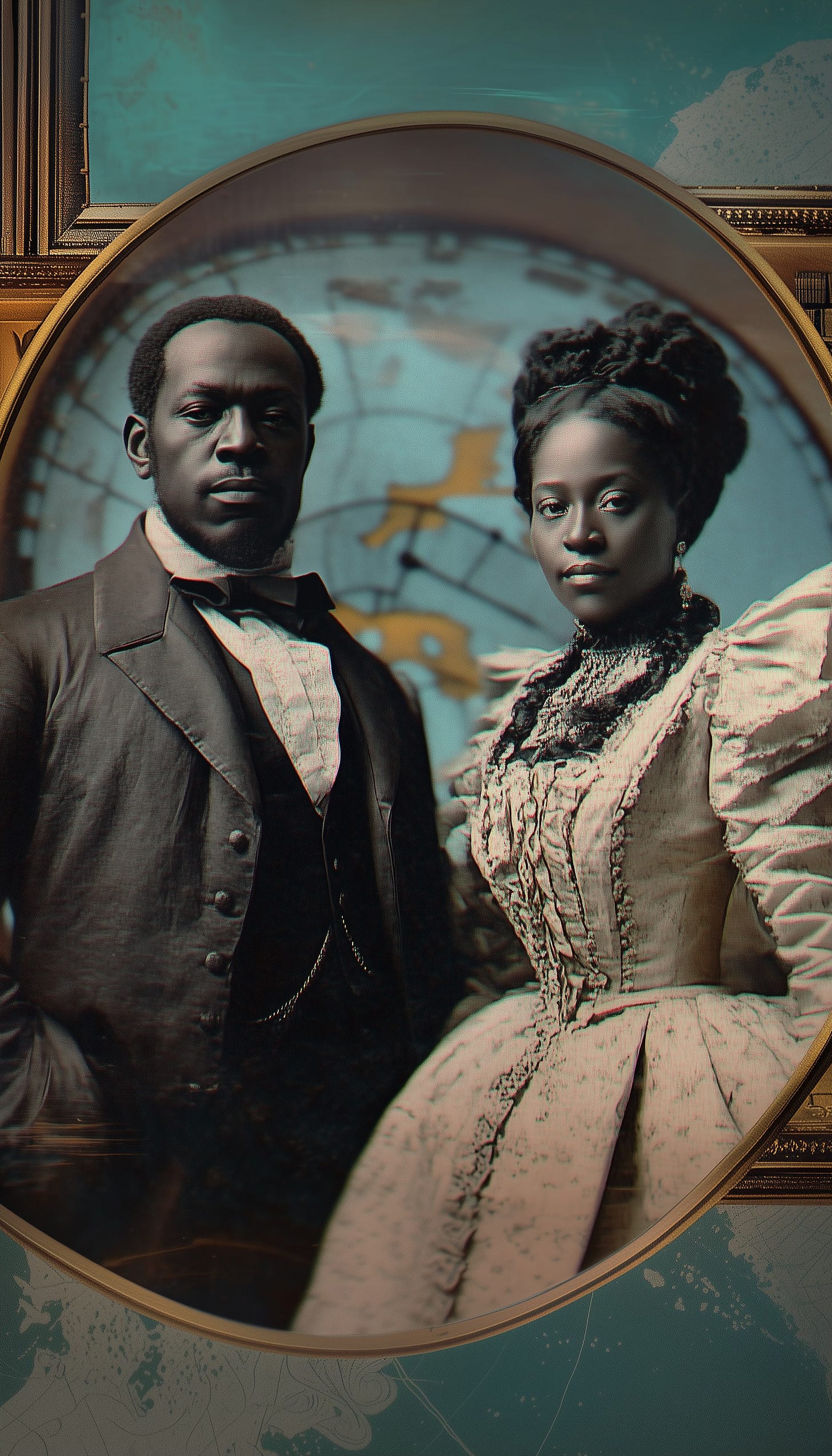As a parent, there are few things more heartwarming than seeing your child excited about learning. This week, my daughter met her 2nd-grade teacher for the first time, and she’s bursting with joy and anticipation for the new school year. She’s eager to find out who her classmates will be, what new things she’ll learn, and all the adventures that lie ahead in her education. Watching her enthusiasm reminded me of how precious education is and how it has always been a gateway to new possibilities, especially for those who have had to fight for the right to learn. It made me think about the incredible journey of John Berry Meachum, a man who understood better than most the transformative power of education.
John Berry Meachum’s story is one of remarkable determination and vision. Born into slavery in 1789, he not only secured his own freedom but also dedicated his life to educating others, even when it was illegal to do so. His contributions to the African American community in St. Louis and beyond continue to inspire us today. Just as my daughter eagerly steps into her classroom, full of curiosity and excitement, Meachum’s work reminds us that the pursuit of knowledge is a profound act of liberation and empowerment.
Meachum’s journey to becoming a pastor, educator, businessman, and advocate for African Americans is a testament to his extraordinary character and unwavering commitment to his community. His life intertwines with the broader struggle for freedom and equality, making him a pivotal figure in American history.
The Path to Freedom
John Berry Meachum’s journey to freedom was marked by sheer determination and a deep sense of responsibility to his family. After purchasing his own freedom at the age of 21, Meachum walked 700 miles back to Virginia to buy his father’s freedom. Not stopping there, he returned to Kentucky, where he freed his mother and siblings. He then moved to Missouri to reunite with his wife Mary, who had been taken there by her owner. Despite having only three dollars to his name, Meachum quickly established himself as a successful carpenter and cooper in St. Louis, eventually purchasing the freedom of his wife and children.
But Meachum’s contributions extended far beyond securing freedom for himself and his family. He dedicated his life to uplifting others, particularly African Americans who faced severe restrictions and injustices during that era.
Contributions and Legacy
Building the First African Baptist Church in St. Louis: In 1827, John Berry Meachum founded the First African Baptist Church in St. Louis, the oldest black church west of the Mississippi River. The church was more than just a place of worship; it was a sanctuary and community center where African Americans could find spiritual guidance, support, and a sense of belonging. Under Meachum’s leadership, the church grew to serve hundreds of congregants, including both free and enslaved individuals.
Creating the Floating Freedom School: In 1847, when Missouri passed laws making it illegal to educate people of African descent, Meachum devised a brilliant solution. He established the Floating Freedom School on a steamboat anchored in the Mississippi River, outside of Missouri’s jurisdiction. This allowed him to continue providing education to African Americans despite the restrictive laws on land. The school, equipped with a library and classroom, became a beacon of hope and a powerful symbol of resistance against oppression.
Pioneering the Underground Railroad in Missouri: John and Mary Meachum were key figures in the Underground Railroad, helping enslaved people escape to freedom. They used their resources to purchase the freedom of enslaved individuals, whom they employed and educated until they could repay their purchase price. The Meachums also helped runaways cross the Mississippi River into Illinois, a free state. Their efforts saved countless lives and demonstrated their profound commitment to the cause of liberation.
Advocating for Education and Self-Respect: In 1846, Meachum spoke at the National Negro Convention in Philadelphia and published a pamphlet titled An Address to All of the Colored Citizens of the United States. In it, he stressed the importance of education and self-respect for African Americans. His advocacy for education was not just about acquiring knowledge; it was about empowering individuals to demand their rights and achieve their full potential.
Mentoring Future Leaders: Among the students who attended Meachum’s Floating Freedom School was James Milton Turner, who would later become a prominent leader and advocate for African American rights. Turner went on to serve as the U.S. consul to Liberia under President Ulysses S. Grant and founded the Lincoln Institute, Missouri’s first school for higher education for black students. Turner’s success is a testament to Meachum’s enduring influence and the importance he placed on nurturing future generations.
The Underground Railroad and Beyond
John Berry Meachum’s work on the Underground Railroad was a crucial part of his legacy. Together with his wife, he guided enslaved people to freedom, often at great personal risk. The Meachums’ home and church served as safe havens, and their involvement in the Underground Railroad made them heroes in the fight against slavery. The Mary Meachum Freedom Crossing in St. Louis, now a recognized site in the National Park Service's National Underground Railroad Network to Freedom, stands as a lasting tribute to their efforts.
A Lasting Legacy
John Berry Meachum’s life and work left an indelible mark on American history. He not only fought for his own freedom but also dedicated his life to the liberation and education of others. His establishment of the Floating Freedom School, his role in the Underground Railroad, and his advocacy for education and self-respect set the stage for future progress in the struggle for civil rights. Through his efforts, Meachum helped lay the groundwork for a more just and equitable society, one where African Americans could rise above the challenges imposed upon them and claim their rightful place as equal citizens.









